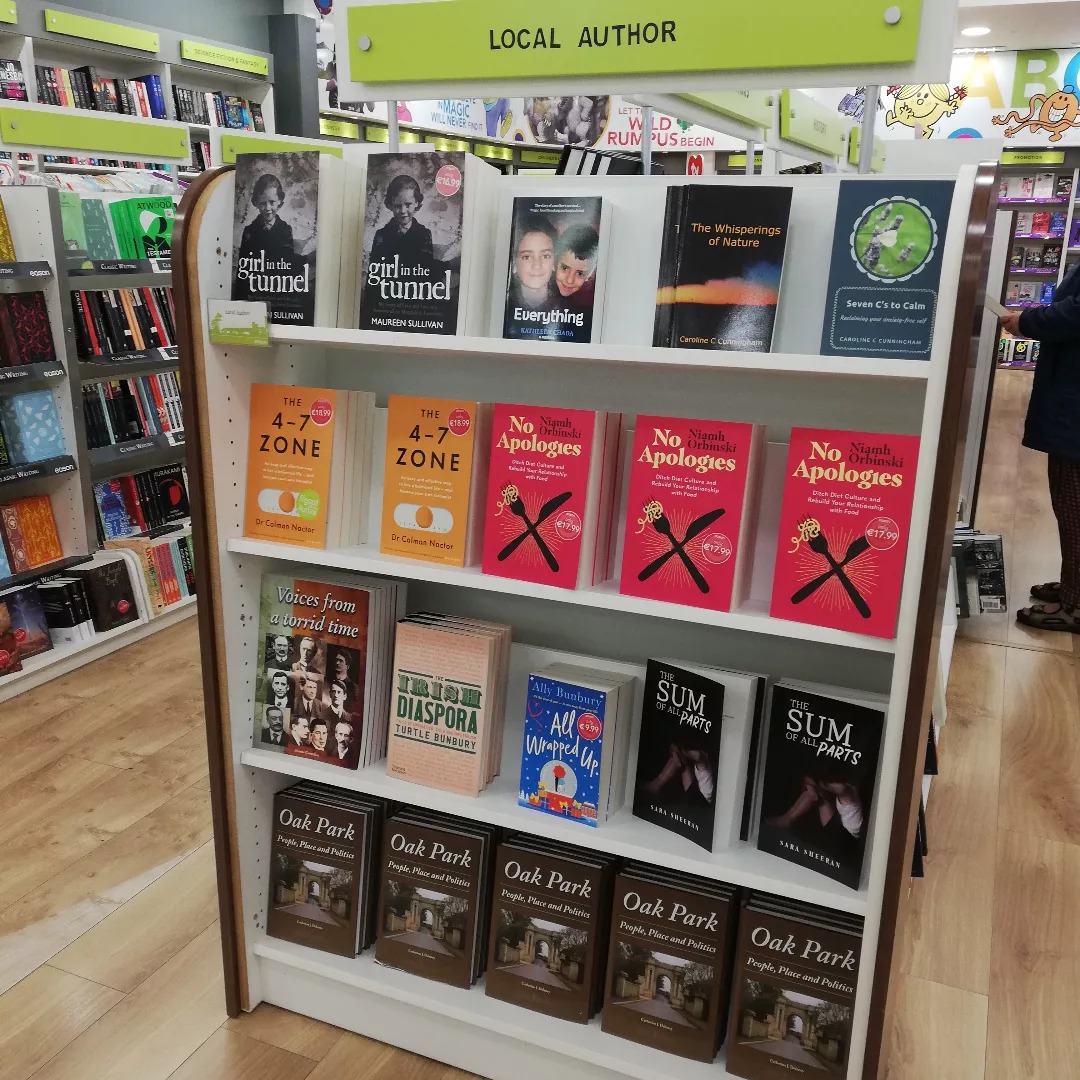
LOCAL AUTHOR
Some time ago I was invited to participate in a local author event here in Carlow, Ireland. It has yet to happen and I have been mulling over - agonising and over-thinking to be more precise - as to why that is. I am after all local and an author. Then it hit me: I'm probably not local enough. You see I may consider myself to be local, I even consider myself to be Irish - albeit honorary - but I wasn't born here. I spent the first nineteen years of my life in North London. But I'm now in my 51st year: I have lived in Ireland for over 30 years. I've had and raised my three children here, I've worked here and paid my taxes here, I've voted in elections. Ireland is my home. When I go back to England, particularly now that my parents have moved out of the family home and relocated from North London, I no longer feelthat I entirely belong. But despite living in Ireland for most of my life, do I really belong here either?
Which brings me back to my original question: am I a local author? I may have lived here for most of my life but I don't have a Carlow accent, I don't even have an Irish accent - I just have a few turns of phrases and a very minimal smattering of Gaeilge. If you heard my voice, you would probably not even think that I was a Londoner, my voice is way too posh. But don't be fooled, I am definitely not posh. I grew up in Edmonton, North London. My family is from Edmonton and Tottenham and I went to school in Edmonton and Winchmore Hill. The prevailing accent in these locales tends to be Del Boy Trotter or someone from the cast of The Only Way is Essex. The only reason I speak the way I do is because my parents were, as my mum would say, "pulling themselves up by their bootstrings." I think they thought that for me to get somewhere in life I had to speak 'properly', which meant that I wasn't allowed to drop my aitches, I had to pronounce my words properly ('singing' not 'singin' for example) - in short I was not allowed to speak like my peers. I don't think my accent - which ended up more Hyacinth Bucket then Del Boy - has necessarily helped me, it did however cause me a certain amount of teasing and bullying throughout my school life and has also given the misconception that I’m stuck up.
I'm sure that throughout my life people have had different perceptions of me. At present you are probably thinking: English, female, author. You're not wrong but you're not entirely right either. Yes I'm English but as I have said I have more affinity to Ireland these days. Female , yes - well, last time I looked anyway. Author? A tricky one as I'm not sure that I qualify for that title, I have after all only one published book to my name. Perhaps for now I shall use the label 'storyteller' instead. But why do we insist on labelling ourselves, on trying to squeeze ourselves into tiny compartments, boxing ourselves in? Is it for convenience? Is it out of fear? I don't get this idea of choosing to have one label as a sole definition of who a person is. One label after all does not and cannot truly define who we are as we are constantly changing and evolving. Also we are not just defined by our gender or nationality or job or religion or politics. We are made up of innumerable subdivisions and footnotes. I am English, female and an author but I am also so much more. I am also a daughter, mother, grandmother, wife, lover, sister, friend, colleague - I could go on and on. Then you have to consider my views, my politics, my emotional states, my hobbies, my health. I am made up of so many different parts and roles, and I behave differently depending on which part or role I currently inhabit. For example how I behave with my family is completely different to how I would behave with my bank manager. Add into this mix that how I - we - behave and respond is also affected by our age, our emotional state, our health (both physical and mental) at any given time....who exactly are any of us and how are we supposed know? It's no wonder that so many of us suffer with mental health issues - anxiety, panic attacks, depression - when you stop to consider all the roles we have to play or feel that we have to or ought to play. It's a theme that I explored in my book The Sum of all Parts, using six narratives to explore the themes of perception, memory and identity. Through these six narratives I tried to reflect on the Gestalt idea that we are made up of different parts – heart, mind, body, spirit and so on – and that we are (despite what Aristotle suggested) greater or ‘other’ than the sum of our parts. To paraphrase the German psychologist Kurt Kofka: summing up is meaningless, it’s the whole-part relationship that matters.
So maybe I am not truly a local, but you know what? I don't think I necessarily need to be or want to be labelled as any one thing. Let's lose the labels and just be. I shall leave the last word to Robert M. Hensel, a leading figure in the disability community and an international poet-writer (note, more than one label!). Granted, this quote was intended in reference to the disability community but I truly feel that it applies to us all:
“There is no greater disability in society than the inability to see a person as more.”
Robert M. Hensel
Post Views : 151